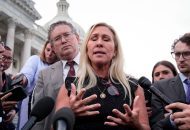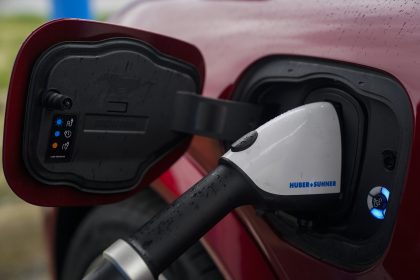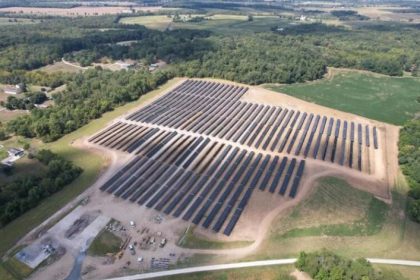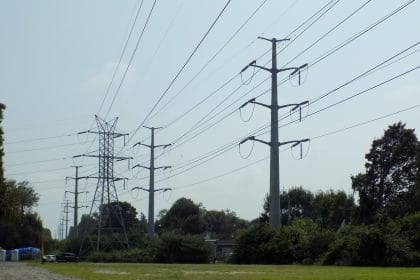Solar Imports Surged in 2023, Tariff Waiver Set to Expire
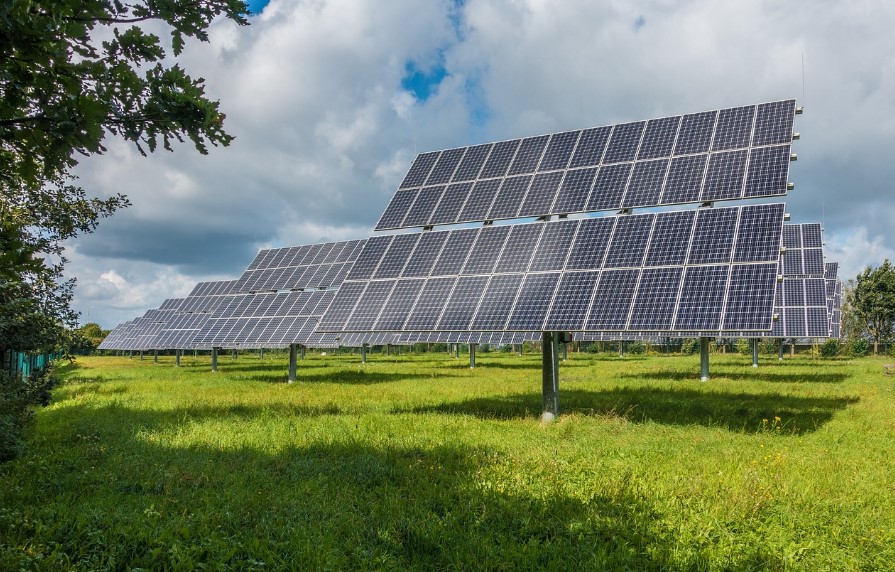
WASHINGTON — The United States saw an “unprecedented wave” of solar panels being imported from Southeast Asia last year, according to a new analysis by S&P Global, the financial information and analytics firm.
Relying on data reported to the U.S. Census Bureau, S&P Global’s Market Intelligence Global Trade Analytics Suite found that solar panel imports surged to a record 54 GW — a jump of 82% over 2022 and a tenfold increase over the past five years.
In the fourth quarter of 2023 alone, imports reached 15 GW, 40% higher than a year earlier.
The fourth quarter mark easily surpassed the previous quarterly high of 14.2 GW, which was set in the third quarter of last year.
It also marked the fifth consecutive quarter when imports of photovoltaic solar panels were in excess of 10 GW.
The marked uptick in imports came as the Biden-Harris administration has been trying to foster the growth of the U.S. solar manufacturing sector with tax credits included in the Inflation Reduction Act.
The act, passed in 2022, modified and extended the clean energy Investment Tax Credit to provide up to a 30% credit for qualifying investments in wind, solar, energy storage and other renewable energy projects.
To qualify, projects had to meet prevailing wage standards and employ a sufficient proportion of qualified apprentices from registered apprenticeship programs.
The act also provided at least $4 billion from the Advanced Energy Project Credit — an allocated credit of up to 30% for advanced energy manufacturing investments — to projects in areas that have seen the closure of a coal mine or retirement of a coal-fired electric generating unit.
In all, the act includes more than 70 investment, production and excise credits designed to facilitate the transition to cleaner energy production, promote advanced manufacturing, encourage the adoption of electric and battery-powered vehicles and reduce greenhouse gas emissions through the use of alternative fuels and other technologies.
But according to S&P Global, market factors including the current glut in foreign imports and plummeting prices, is somewhat blunting the impact of these measures.
The company’s analysis attributes the surge in imports to China-based companies operating in Southeast Asia.
It said the shipments have been growing since President Joe Biden used an emergency declaration to grant a two-year moratorium on anti-dumping and anti-circumvention tariffs to four countries — Cambodia, Malaysia, Thailand and Vietnam — in early June 2002.
At the time, the president also invoked the Defense Production Act and said the tariff exemption, which expires in June, would serve as a “short-term bridge” while allowing U.S. manufacturing of solar panels to ramp up.
In April 2023, the White House Office of Management and Budget pushed back on a congressional effort to rescind the tariff waiver, saying the nation was “not on track to increase domestic solar panel manufacturing capacity eight-fold” by the end of Biden’s first term.
The OMB’s response noted that these investments would take time to ramp up production.
The moratorium was necessary, it said, to “satisfy the demand for reliable and clean energy while ensuring the Commerce Department is able to rigorously enforce U.S. trade laws, hold trading partners accountable and defend U.S. industries and workers from unfair
trade actions.”
The short-term bridge, envisioned by the president’s actions, would “ensure there is a thriving U.S. solar installation industry ready to purchase the solar products that will be made in these American factories once they are operational.”
The waiver remained in effect even after a Commerce Department determination in August 2023 that certain Chinese solar power producers were routing their supply chains through the four Southeast Asian countries to avoid tariffs on imports from China.
After the tariff waiver expires in June, companies have until December to install panels to avoid duty collection, according to a directive from U.S. Customs and Border Protection.
It states that imports not “utilized” by the expiration date of June 6, 2024 will be subject to antidumping and countervailing duties.
It further specifies that merchandise that remains in inventory or a warehouse in the U.S., is resold to another party, or is subsequently exported or destroyed after importation is not considered utilized.
“Importers should be prepared to document to U.S. Customs and Border Protection, upon request, whether ‘applicable entries’ entering during the specified period were used or installed in the United States by the expiration date,” the directive said.
In the meantime, S&P Global said, shipments from Southeast Asia are accelerating.
Cambodia, Malaysia, Thailand and Vietnam together accounted for 84% of U.S. panel imports in the fourth quarter of 2023, up from 78% in the third quarter, according to the Market Intelligence Global Trade Analytics Suite.
Data collected by Panjiva, a supply chain research unit of S&P Global Market Intelligence, indicates that the most prolific shippers to the U.S. in the fourth quarter included subsidiaries of Arizona-based thin-film PV company First Solar Inc. and affiliates of China-headquartered companies Trina Solar Co. Ltd. and Boway Group.
Trina, one of the world’s largest PV-makers, rejected a Commerce Department’s determination that it was among several China-based companies circumventing tariffs.
According to S&P Global, Trina and other Chinese companies plan to take advantage of IRA incentives to serve the growing U.S. solar market with local panel factories while expanding their supply chains to the wafer level in Southeast Asia.
Dan can be reached at [email protected] and at https://twitter.com/DanMcCue












